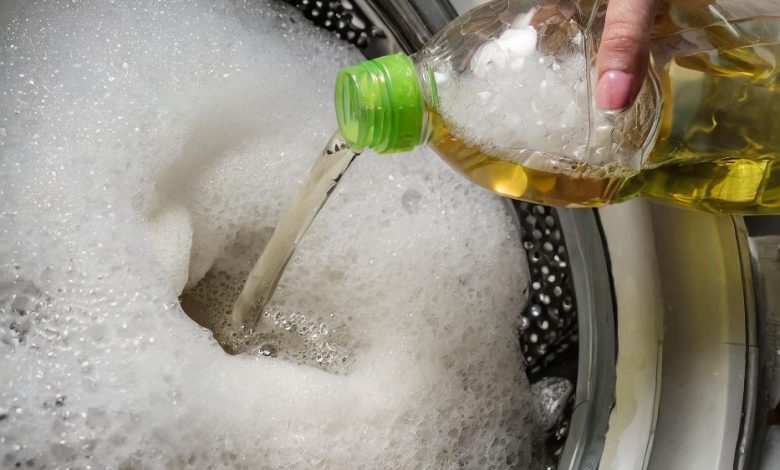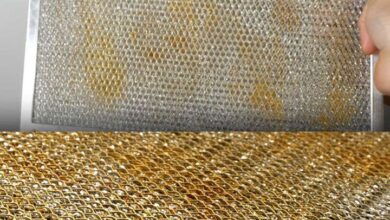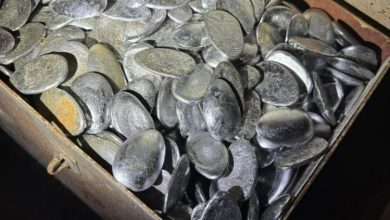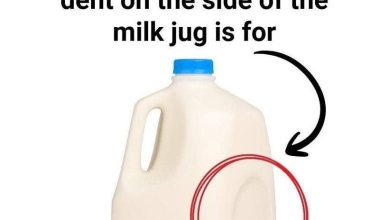Vinegar is the key to whiter whites and softer towels, but most use it wrong. Here’s the right way to use it

Many of us have vinegar in our kitchen cabinets, typically used for cooking or cleaning. But did you know that vinegar can also transform your laundry routine? It’s true! Vinegar can help you achieve whiter whites and softer towels without relying on harsh chemicals. Intrigued? Let’s dive into how this simple household item can make a big difference in your laundry.
ADVERTISEMENT
How Vinegar Works to Whiten Whites and Soften Towels
1. Natural Bleaching Agent
Vinegar contains acetic acid, which acts as a gentle bleaching agent. It breaks down and removes dirt and stains from fabrics without the harsh effects of bleach, helping your whites shine brighter.
ADVERTISEMENT
2. Fabric Softener Alternative
Detergent residue can make towels stiff. Vinegar dissolves these residues, leaving your towels feeling soft and fluffy.
ADVERTISEMENT
3. Odor Elimination
Vinegar neutralizes unpleasant odors, ensuring your whites and towels smell fresh. It’s especially effective for removing musty smells from towels.
4. Color Brightening
Vinegar helps maintain the vibrancy of colored clothes by dissolving alkaline deposits left by detergents, which can dull colors over time.
How to Use Vinegar in Your Laundry
1. For Whiter Whites
- Add one cup of distilled white vinegar to your washing machine during the rinse cycle.
- Let the vinegar tackle any remaining residues or stains, making your whites appear brighter.
2. For Softer Towels
- Add half a cup of vinegar during the rinse cycle when washing towels.
- This will break down detergent residues and restore fluffiness to the towels.
3. Stain Removal
- Mix vinegar and water in equal parts.
- Apply the solution directly to the stain.
- Let it sit for a few minutes.
- Wash as usual to help lift even the most persistent marks.
4. Removing Mildew
- Soak towels in a solution of one part vinegar and one part water.
- Launder as usual to eliminate mildew and prevent it from returning.
Benefits of Using Vinegar in Laundry
1. Eco-Friendly and Non-Toxic
Vinegar is free from harmful chemicals, making it an eco-friendly choice for laundry care.
2. Cost-Effective
A bottle of vinegar is significantly cheaper than many commercial laundry products, saving you money without sacrificing cleanliness or fabric care.
3. Gentle on Fabrics
Vinegar is gentle on fabrics, helping to maintain the quality and longevity of your clothes and linens.
Common Mistakes When Using Vinegar in Laundry
1. Using Too Much Vinegar
Using excessive amounts can potentially damage your clothes or washing machine. Stick to recommended amounts for the best results.
2. Mixing Vinegar with Bleach
Never mix vinegar with bleach. This combination produces chlorine gas, which is highly toxic and dangerous. Always use vinegar on its own or with other natural laundry agents.
3. Not Adjusting for Water Hardness
If you have hard water, you might need to use a bit more vinegar to achieve the desired results. Hard water can reduce the effectiveness of vinegar, so adjust the amount accordingly.
Best Practices for Using Vinegar in Laundry
1. Correct Measurements
- For whiter whites, use one cup of vinegar in the rinse cycle.
- For softer towels, use half a cup. Always measure to avoid using too much.
2. Combining with Other Natural Agents
Combine vinegar with baking soda or lemon juice for enhanced cleaning power. These natural agents complement each other well and can tackle a wider range of laundry issues.
3. Storage and Shelf Life of Vinegar
Store vinegar in a cool, dark place to maintain its potency. Vinegar generally has a long shelf life, but it’s best to use it within two years for optimal effectiveness.




